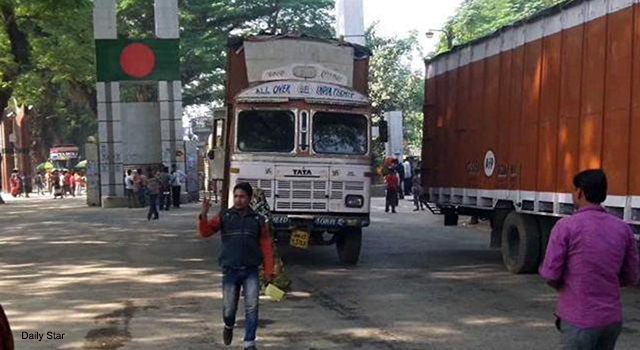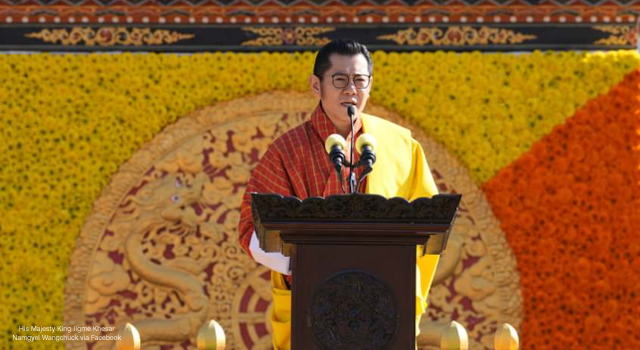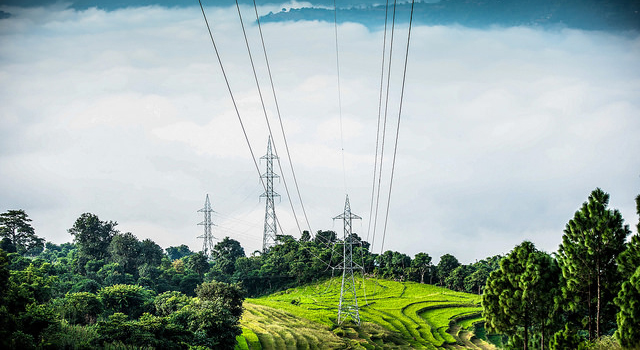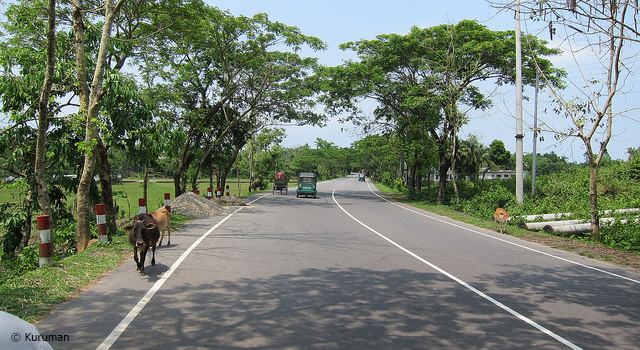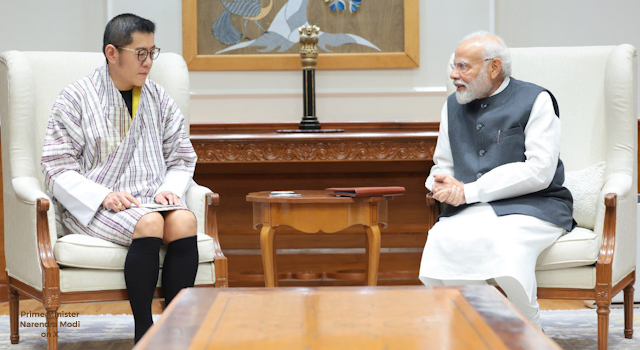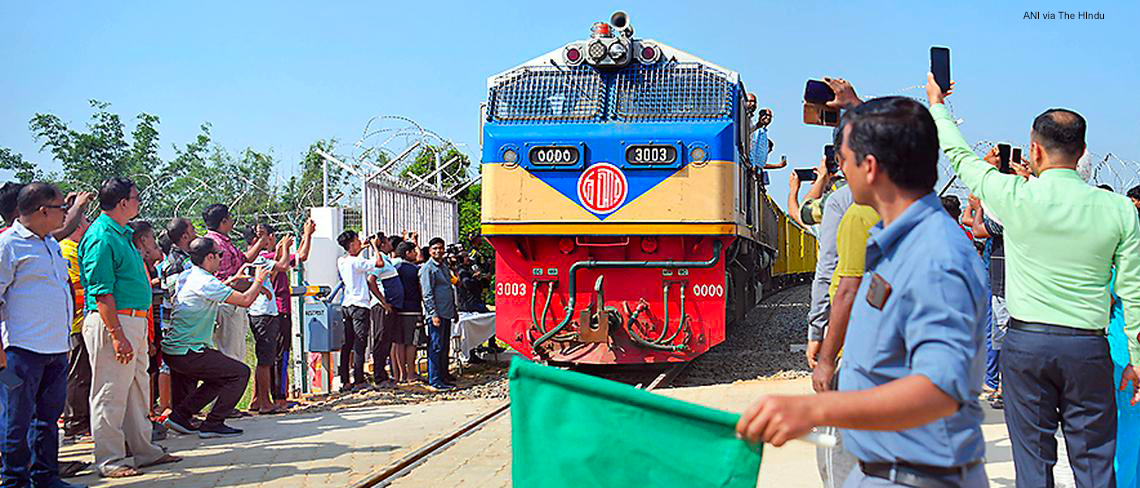
Commentary: ECTS: Revolutionizing Nepal’s Trade
12 February 2021
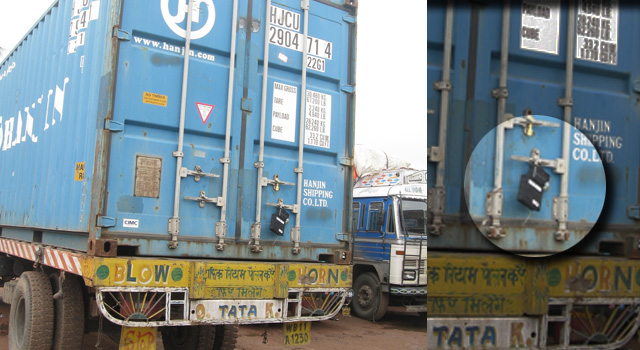
On 7 June 2017, the Governments of Nepal and India signed a Memorandum of Intent bilaterally agreeing to launch a pilot project to facilitate transit traffic by using Electronic Cargo Tracking System (ECTS) with support from the Asian Development Bank (ADB). Its extension to the Visakhapatnam (Vizag) Port for transshipment of Nepal-bound goods became a success. Mr. Rubal Jain from the Indian private sector discusses the benefits of ECTS since its implementation. This piece originally appeared on the Annapurna Express.
ECTS: Revolutionizing Nepal’s trade
By Rubal Jain
Trade and transit have always gone hand in hand. As civilizations evolved and countries came into existence, the laws regarding transport of goods became more and more stringent to prevent malpractices like smuggling. The laws now need to be molded according to the new needs of the world to make trade easier, cheaper, and convenient.
Let us understand this concept with the help of an example. Take, for instance, import of goods from Singapore. We are discussing this particular example as Nepal is a landlocked country, which means that it relies heavily on India to facilitate its imports through roads and railways via Kolkata Port and more recently Vizag Port.
Easy transit procedures is Nepal’s sovereign right. However, the Nepal-India treaty of transit complicated these procedures, making them time-consuming and expensive. There was continuous friction on the subject between the two countries. The Nepali side always complained that procedures are expensive, cumbersome, and lead to delays. It was alleged that Custom Transit Declaration (CTD) required some 21 procedures and 30 signatures before goods could be released. Nepal government has actively pursued changing the procedure to international transshipment for over a decade, starting in December 2011 with the inter-governmental meeting of the two Commerce Secretaries.
After due consideration and assistance of the Asian Development Bank, Nepal and India entered a Memorandum of Intent on 7 June 2017: it was bilaterally agreed to launch a pilot project to facilitate transit traffic by using Electronic Cargo Tracking System (ECTS). The project was slow to take off from Kolkata. But after Nepal pushed for its extension to Vizag, it became a great success.
The following benefits of ECTS have been revealed since its implementation:
- Earlier, some six documents, 21 signatures, and 30 procedures had to be undertaken at Kolkata Port for clearance. Sensitive goods required an insurance policy and bank guarantee for clearance. Thanks to ECTS, all of these requirements have disappeared.
- In view of the enhanced security provided by GPS tracked electronic seals, Indian Customs agreed to waive the need for an insurance policy for sensitive goods which benefited Nepali importers by bringing down the cost of transaction.
- Before the implementation of ECTS, it took more than 45 days to deliver the goods, but now, the entire process is taking only 15 days. In some cases, the goods have been delivered in just seven days.
- Since ECTS allows the concerned authorities to track the movement of goods at all times, the transporters’ laid-back attitude has been put in check, and any unnecessary detours/stoppages can now be immediately spotted.
- The new system has brought Nepal and Indian customs on a single digital platform helping Nepal make a leap in World Bank’s ease of trading across borders index, from 76 in 2018 to 60 in 2020.
- When the coronavirus disease (COVID-19) induced lockdowns were in place and most global supply lines were broken, this new automated procedure became a lifeline for maintaining Nepal’s global supply chain.
The Vizag Miracle
The cargo movement from Vizag was most affected due to long distance from Nepali border (1,500 km) and because Nepal did not have a consulate general office in Vizag. So, getting bank attested documents and letter of undertaking from Consulate General Office to Vizag delayed customs clearance of cargo by weeks. At one point, thousands of containers were piled up at Vizag Port.
Meanwhile, Maersk Line had already started a new commercial service for Nepal where freight was prepaid up to Inland Clearance Depot (ICD) Birgunj. The eco-system was already in place for implementing ‘transshipment’ in place of ‘transit’. Nepal government’s push came at the right time.
India agreed to implement a transshipment procedure from Vizag, subject to affixing the electronic GPS lock system, freeing Nepal’s importers from the hassles of engaging a Customs House Agent for clearance and transporter for movement of goods.
From then on, it became the responsibility of the shipping lines to complete customs procedures and transport goods through Container Corporation of India, via rail, to ICD Birgunj. It led to a dramatic improvement in the ease of doing business for Nepali traders. Within a few weeks, the entire backlog of containers at Vizag was cleared.
All of these advantages and reforms that have been brought about since the implementation of ECTS make its benefits self-evident. As the system is relatively new, there is plenty of misinformation in the market, which the importers need to be wary of.
While the published ECTS rate is a mere Indian Rs 3,300 or about 2-3 percent of total freight charges, shipping lines are taking advantage of the new convenience and have increased their rates exorbitantly. Some are even charging as much as Rs 10,000 in the name of ECTS. Awareness of cost of service is a must to negotiate charges with the shipping lines; and wherever shipping lines overcharge in the name of ECTS, traders must bring it to the notice of the Department of Commerce.



